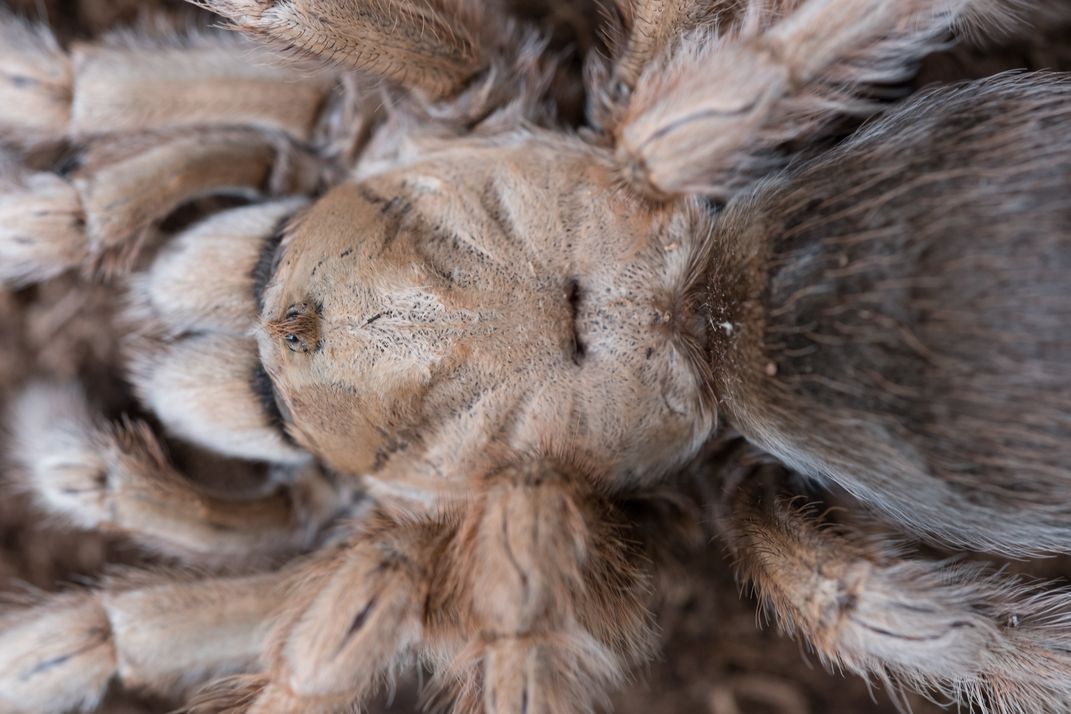Portrait of Aphonopelma Chalcodes. The Mexican Blonde Tarantula has a limited distribution in the deserts of Arizona and adjacent parts of Mexico but can be very common within this range. The common name "blond tarantula" refers to the carapace, which is densely covered in pale hairs, and contrasts strongly with the all-dark legs and abdomen. Pinar de la Venta, Jalisco. Mexico. Little studied, these spiders are the object of a booming illicit trade as pets and display pieces. Scientists report a significant amount of illegal activity involving tarantulas, believed to be fueled largely by hobbyists willing to pay hundreds of dollars apiece for pet spiders. The illegal tarantula trade is a little-known corner of the black market in wildlife, a multibillion-dollar industry that’s harming animal populations around the globe. To keep up with demand, some traders hire local people to hunt tarantulas in the wild. The spiders are smuggled out, then sold to breeders or collectors looking for the newest, most colorful, or otherwise most distinctive creature. Tarantulas are especially vulnerable to poaching because they’re long-lived (some reach 30 years old), and females reproduce late and infrequently.
| Date Taken: | 10.2018 |
| Date Uploaded: | 11.2018 |
| Photo Location: | jalisco, Mexico |
| Camera: | X-Pro2 |
| Copyright: | © Juan Pablo Ampudia |

